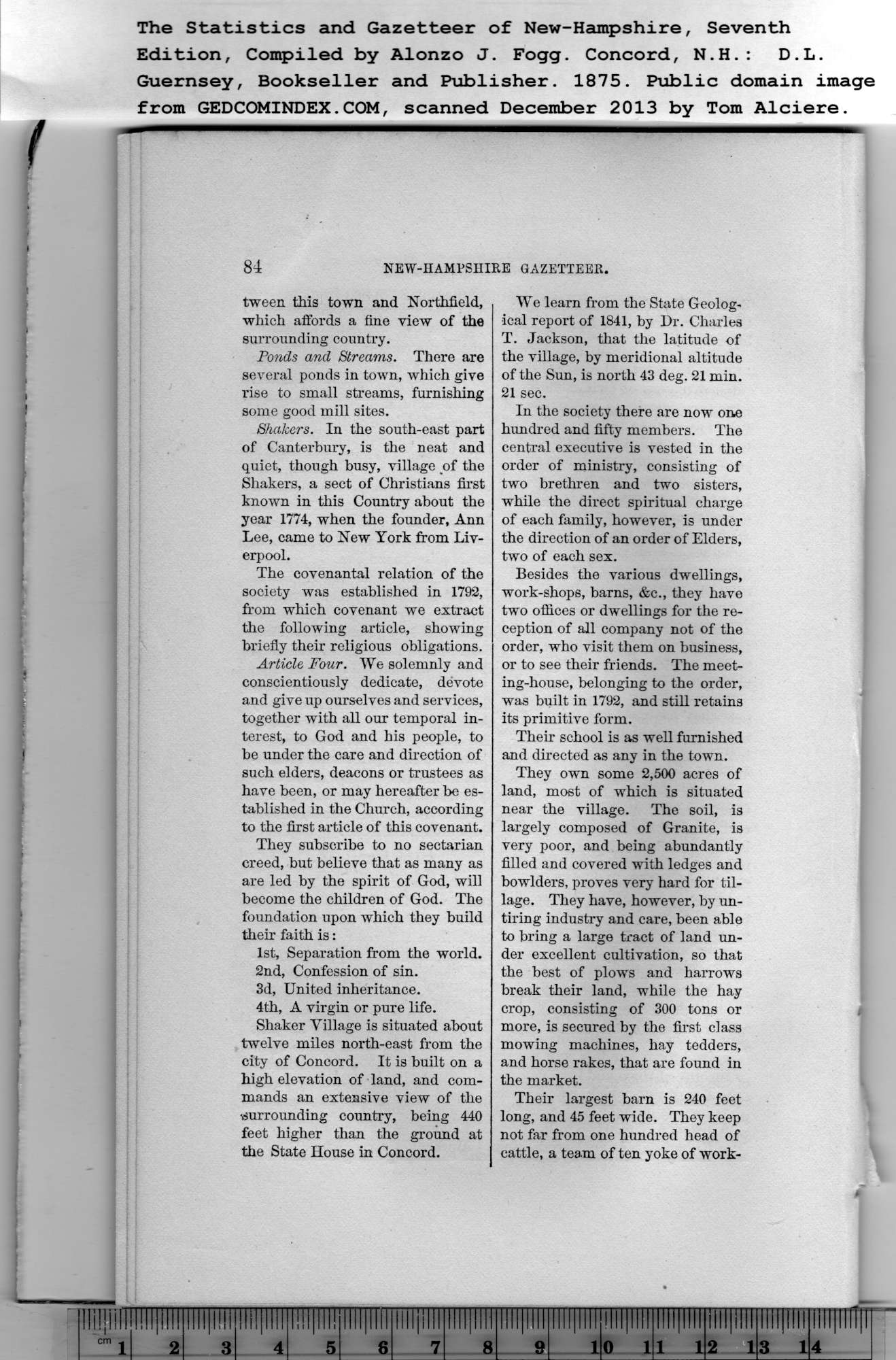|
84
The Statistics and Gazetteer of New-Hampshire, Seventh
Edition, Compiled by Alonzo J. Fogg. Concord, N.H.: D.L.
tween this town and Northfield,
which affords a fine view of the
surrounding country.
Ponds and Streams. There are
several ponds in town, which give
rise to small streams, furnishing
some good mill sites.
Shakers. In the south-east part
of Canterbury, is the neat and
quiet, though busy, village of the
Shakers, a sect of Christians first
known in this Country about the
year 1774, when the founder, Ann
Lee, came to New York from Liv-
erpool.
The covenantal relation of the
society was established in 1792,
from which covenant we extract
the following article, showing
briefly their religious obligations.
Article Four. We solemnly and
conscientiously dedicate, devote
and give up ourselves and services,
together with all our temporal in-
terest, to God and his people, to
be under the care and direction of
such elders, deacons or trustees as
have been, or may hereafter be es-
tablished in the Church, according
to the first article of this covenant.
They subscribe to no sectarian
creed, but believe that as many as
are led by the spirit of God, will
become the children of God. The
foundation upon which they build
their faith is:
1st, Separation from the world.
2nd, Confession of sin.
3d, United inheritance.
4th, A virgin or pure life.
Shaker Village is situated about
twelve miles north-east from the
city of Concord. It is built on a
high elevation of land, and com-
mands an extensive view of the
surrounding country, being 440
feet higher than the ground at
the State House in Concord. |
We learn from the State Geolog-
ical report of 1841, by Dr. Charles
T. Jackson, that the latitude of
the village, by meridional altitude
of the Sun, is north 43 deg. 21 min.
21 sec.
In the society there are now one
hundred and fifty members. The
central executive is vested in the
order of ministry, consisting of
two brethren and two sisters,
while the direct spiritual charge
of each family, however, is under
the direction of an order of Elders,
two of each sex.
Besides the various dwellings,
work-shops, barns, &c., they have
two offices or dwellings for the re-
ception of all company not of the
order, who visit them on business,
or to see their friends. The meet-
ing-house, belonging to the order,
was built in 1792, and still retains
its primitive form.
Their school is as well furnished
and directed as any in the town.
They own some 2,500 acres of
land, most of which is situated
near the village. The soil, is
largely composed of Granite, is
very poor, and being abundantly
filled and covered with ledges and
bowlders, proves very bard for til-
lage. They have, however, by un-
tiring industry and care, been able
to bring a large tract of land un-
der excellent cultivation, so that
the best of plows and harrows
break their land, while the hay
crop, consisting of 300 tons or
more, is secured by the first class
mowing machines, hay tedders,
and horse rakes, that are found in
the market.
Their largest barn is 240 feet
long, and 45 feet wide. They keep
not far from one hundred head of
cattle, a team of ten yoke of work- |
